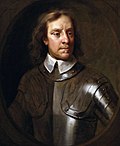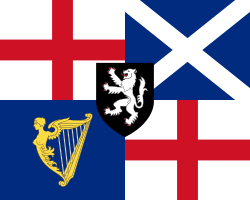The Protectorate
The Protectorate was the period of British history during which the Commonwealth of England, Scotland, and Ireland was governed by a Lord Protector, which was from 1653 to 1659.
Before the Protectorate, England (and then Scotland and Ireland) had been ruled directly by Parliament since it had declared England to be a Commonwealth in 1649. The Rump Parliament had been sent away in April 1653 by soldiers led by Oliver Cromwell. Although the replacement Barebones Parliament (July–December 1653), was nominated by Cromwell and the leaders of the army, it was just as difficult to control.
The post of Lord Protector was created by a constitution passed in December 1653, which gave Cromwell the position for life. Although the constitution divided power between the Lord Protector, the Council of State and Parliament, there was in practice again the strong executive power that had been absent since the end of the monarchy. Cromwellian government has been called 'one of the first experiments in (de facto) military dictatorship' (Abbott).
During the Protectorate, there was Puritan legislation. Religious toleration was extended to Jews and most Protestants but not Anglicans or Roman Catholics.
After Cromwell's death in September 1658, the new Lord Protector, Richard Cromwell, was unable to control the army and resigned in May 1659. After the chaotic English Interregnum, the monarchy was restored in May 1660 through the initiative of General George Monck.


